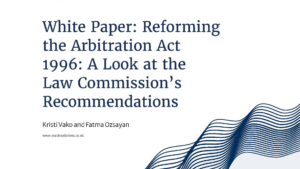Whistleblowing and its implementation in the UK, Germany, and Italy
Have you got a question?
Our white paper on whistleblowing provides a comprehensive overview of the EU Whistleblowing Directive, its implementation in Italy and Germany, and the situation in the UK post-Brexit.
Key features of the EU Whistleblowing Directive
Protective measures
Reporting channels
Public disclosure
Implementation deadlines
Implementation in Italy
Situation in the UK post-Brexit
Key takeaways
- Protection of whistleblowing is a fundamental tool for maintaining transparency and accountability within organisations.
- The EU Whistleblowing Directive has set clear standards for whistleblower protection and reporting channels across all member states.
- Italy and Germany have implemented the directive with specific provisions, timelines and enforcement mechanisms.
- The UK, while not subject to the obligations of the EU directive, has chosen to adopt a substantially similar package of legislation.
- All companies, regardless of their location within the EU, need to evaluate their systems for handling whistleblowing reports and ensure compliance with the relevant laws and regulations. In the whole EU, the deadline for medium sized businesses (50 to 249 employees) to establish internal reporting channels is 17 December 2023.
Book a call back
Download the full white paper
Share this article
Download the full white paper
Related posts

Reforming the Arbitration Act 1996: A Look at the Law Commission’s Recommendations
Have you got a question? Enquire Now Kristi Vako and Fatma Ozsayan have looked at the new recommendations published by the Law Commission.

The digitation of the Italian public procurement lifecycle: Artificial Intelligence application in procurement from January
A definitive law for oncological oblivion, namely the opportunity for individuals who have recovered from an oncological condition to erase the ‘bureaucratic’ negative effects that the disease still imposes on employment searches, adoptions, mortgage applications, or insurance subscriptions.

Landmark Aviation Cases Set New Standards in EU261 Interpretation
Our client is a company listed in Shanghai Stock Exchange, one of the biggest intelligent power distribution solution providers as well as manufacturer of smart meters, transformers, box-type substations, E-Car charger and photovoltaic inverters.

Redefining loyalty: Tesco’s brand evolution amidst Legal challenges
Tesco was embroiled in a legal battle against Lidl that reached the Court of Appeal over claims arising from alleged infringement of copyright


